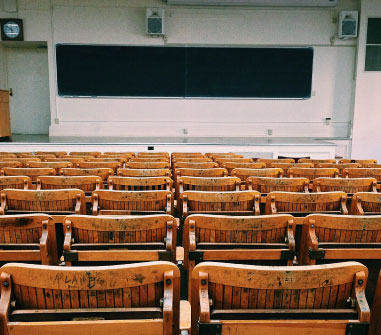
An increasing number of universities have been offering online classes in recent years, but now due to the COVID-19 pandemic, virtual classrooms are the only classrooms. This has become the sudden necessary reality for every university in the country.
With entire student bodies now taking classes and completing tests remotely, the issue of plagiarism and academic integrity has come to the forefront. Online education poses unique challenges for universities in both detecting and issuing sanctions for online cheating and academic misconduct.
What are the challenges?
Here are a few examples of some of the limitations associated with online schooling that make it a potential haven for new kinds of plagiarism:
- Lack of interaction between students and instructors: Professors who meet and get to know their students will quickly develop an understanding of their personalities and their writing and discussion styles. In many cases, professors begin investigations into plagiarism on a hunch that something is off about a student’s work, and this kind of hunch can only occur when the professor knows her students.
- Difficult to confirm students in class: When students are in a physical classroom, you can easily verify the student taking the class is actually the one who’s supposed to be taking an exam. Online, a student can potentially givelogin information to someone else to take a test on their behalf.
- Less control over the environment: In physical classrooms, professors and instructors can find ways to control the classroom environment to minimize the potential for plagiarism or cheating. For example, blue book examinations have long been used that force students to write longer answers and essays in class. They require students to have a thorough knowledge of their material. Blue books are much more difficult to plagiarize than multiple choice examinations. Instructors can also carefully proctor the classroom during examinations. There is not nearly as much environmental control for online courses.
- Less access to school resources: Because students in online courses working away from campus do not have access to the university libraries or other resources, they may become more desperate with finding the material they need, and struggle to get assistance. This could make them more likely to resort to plagiarism.
- Unmonitored access to social media:Where the student’s only access to the classroom is virtual, instructors will find it difficult to control students’ communications via social media, text message, or even through other media open in their browsers. In the brick and mortar classroom, this is less of an issue where professors can at least see the class.
What schools are doing to combat the issue
Despite the aforementioned challenges,schools are taking steps to minimizeissues withacademic dishonesty. Many require video chat during certain courses or exams so instructors can verify the identity of the student participating.
Schools such as Phoenix University and others that specialize in online course offerings, have long used artificial intelligence programs to monitor students’ examination questions and even their online presence for potential signs of cheating. Now mainstream universities are turning to this software as well.
And just because the classroom has moved online does not mean that universities have stopped proctoring examinations. In some ways, proctoring is more laborious and that it is virtually impossible to observe all students taking an exam by Zoom at the same time. However, video sessions also make it possible not only to proctor an exam by observing what each individual student does long after the exam has concluded, when there is evidence of cheating or an academic integrity violation the recording serves as evidence, down to the timestamp that marks the exact point student cheated.
At the same time, the record of electronic communications potentially provides exculpatory evidence for the accused student. And students should be aware of this and not erase their messages or other data that potentially document their activities during a test.
Perhaps the most important step universities can take is to encourage ongoing communication and interaction between students and instructors. Students who feel well supported in their education and who are able to go to their instructors with questions will be less likely to feel like they need to resort to plagiarism.
For more information about the steps your university can take to avoid potential issues with plagiarism alongside online schooling, contact our legal team today with any questions you have.